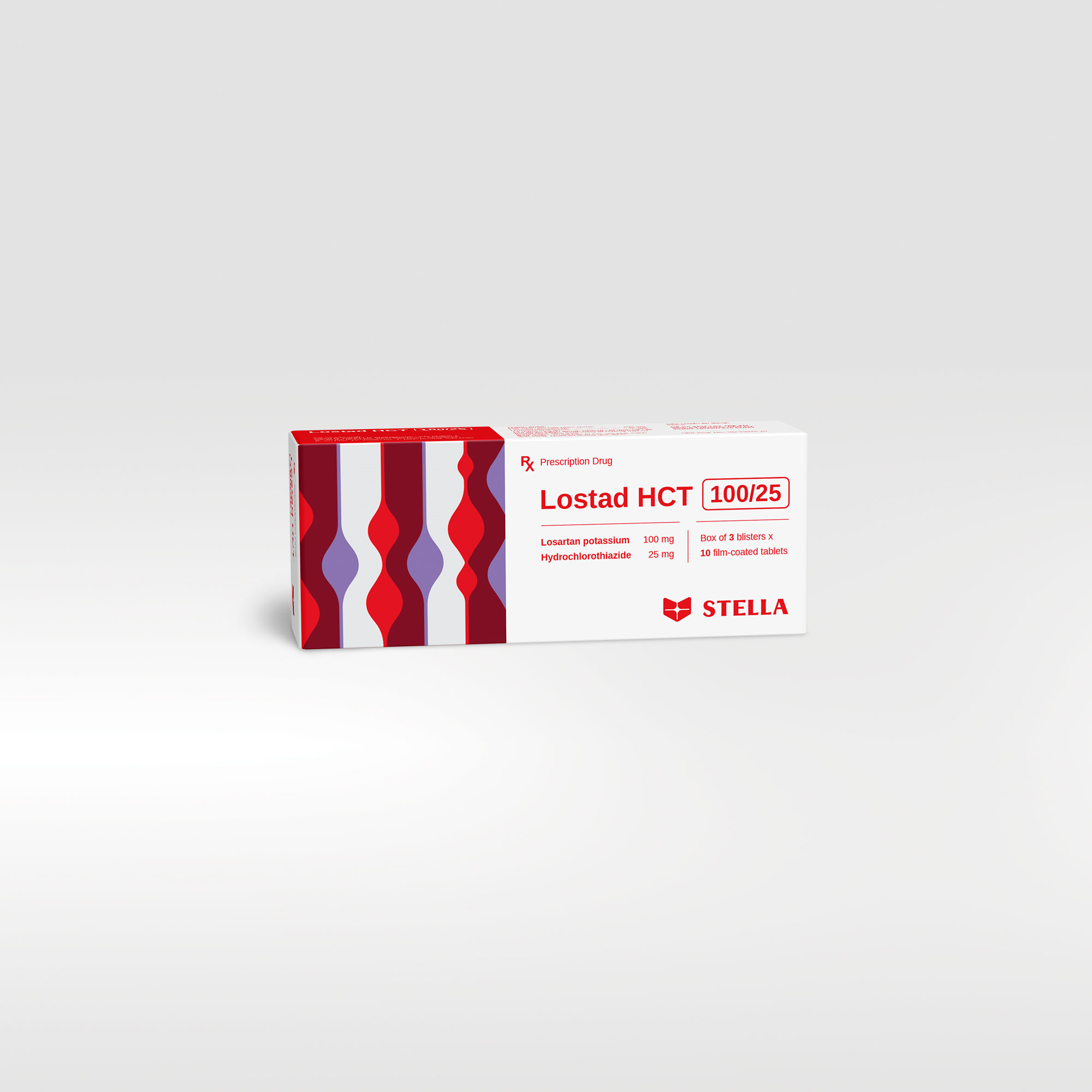Indications:
- Hypertension. This fixed dose combination is not indicated for initial therapy of hypertension, except when the hypertension is severe.
- The risk of stroke in patients with hypertension and left ventricular hypertrophy.
Dosage:
Hypertension:
- 1 tablet of Lostad HCT 50/12.5 (if blood pressure is not adequately controlled with losartan monotherapy or hydrochlorothiazide alone). If blood pressure remains uncontrolled after about 3 weeks of therapy, the dose may be increased to one tablet of Lostad HCT 100/25 once daily.
- The usual dose is one tablet of Lostad HCT 50/12.5 once daily. More than one tablet of Lostad HCT 100/25 once daily is not recommended. The maximal antihypertensive effect is attained about 3 weeks after initiation of therapy.
Severe hypertension: The starting dose is one tablet of Lostad HCT 50/12.5 once daily. For patients who do not respond adequately to the dose mentioned above after 2 to 4 weeks of therapy, the dosage may be increased to one tablet of Lostad HCT 100/25 once daily. The maximum dose is one tablet of Lostad HCT 100/25 once daily.
Hypertensive patients with left ventricular hypertrophy: Treatment should be initiated with losartan 50 mg once daily. One tablet of Lostad HCT 50/12.5 substituted if the blood pressure reduction is inadequate. If additional blood pressure reduction is needed, Lostad HCT 100/12.5 may be substituted, followed by Lostad HCT 100/25.
Usage:
Lostad HCT 100/25 is administered orally, with or without food.















